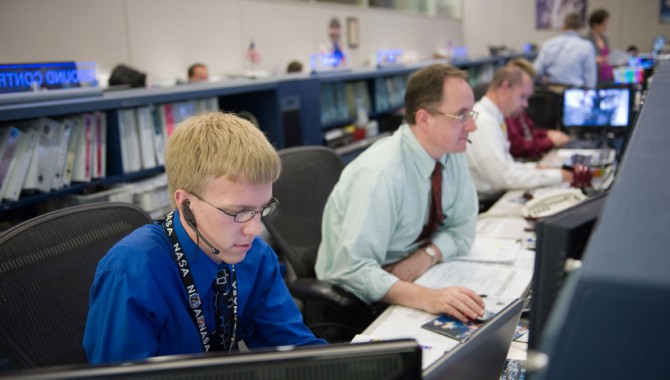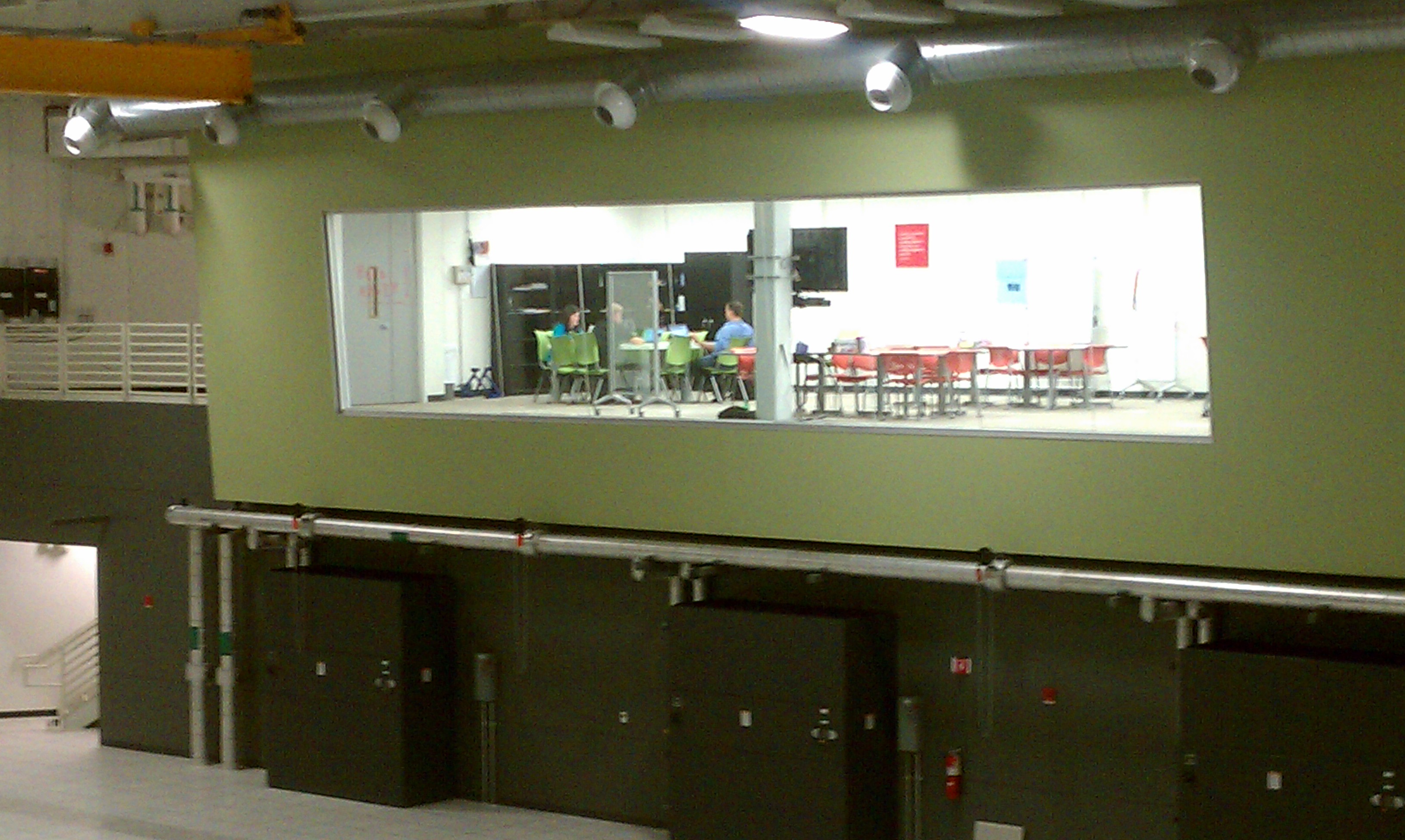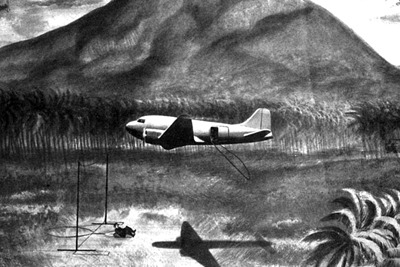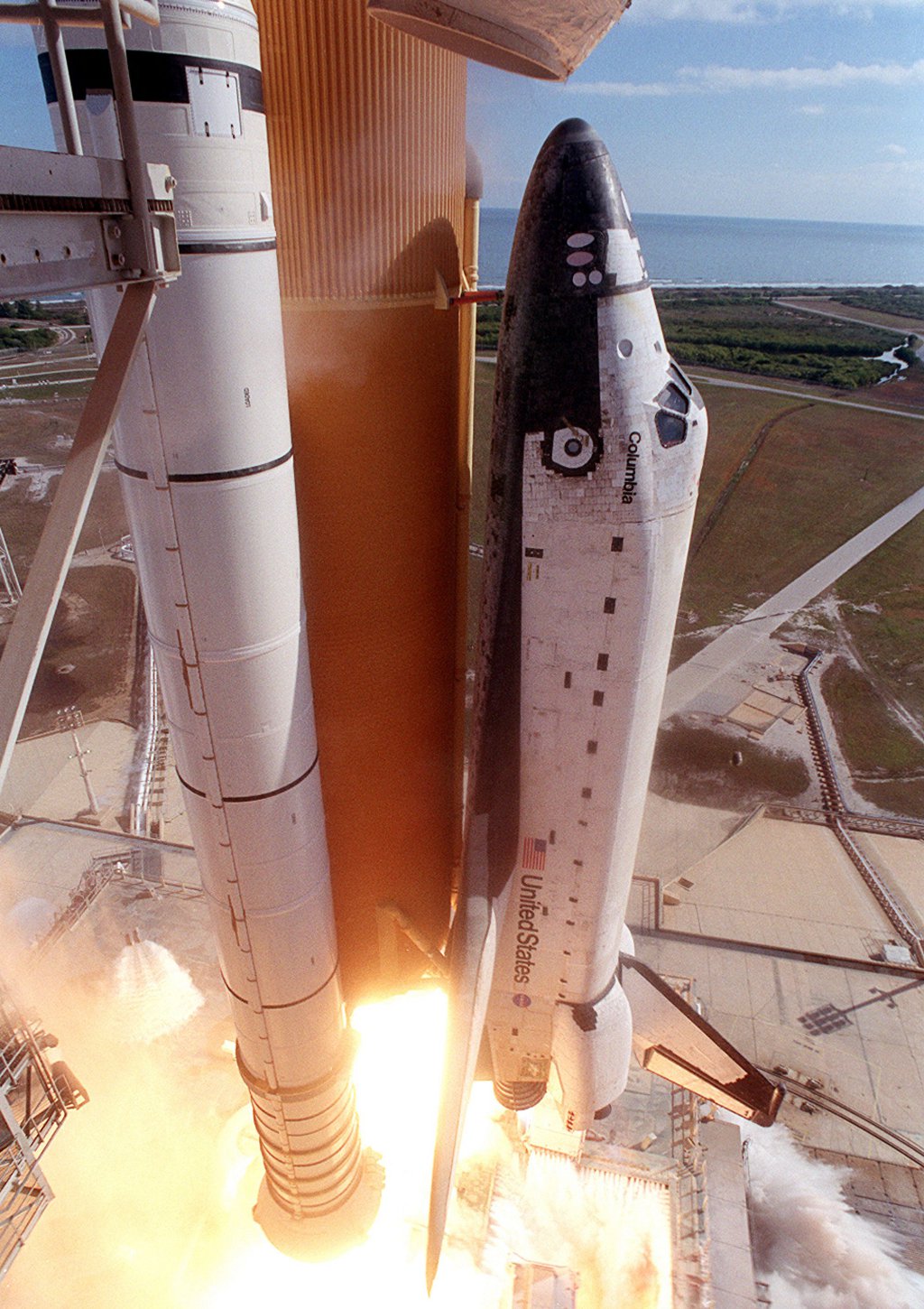
Philip Harris in the Mission Control Center at Johnson Space Center. Photo courtesy of Philip Harris.
June 14, 2011 Vol. 4, Issue 4
Two weeks on the job, Philip Harris walked into an office looking for something to do and walked out a project manager.
He Asked for It

Philip Harris in the Mission Control Center at Johnson Space Center.
Photo courtesy of Philip Harris.
“It was absolutely terrifying,” Philip Harris, aerospace technologist for Mission Operations Integration in Johnson Space Center’s Mission Operations Directorate, said about his new project management position. “I was expecting to be the worker bee on some project,” he said, “expecting somebody else to be managing me.” The next thing Harris knew, he joined the project management team for Johnson Space Center’s ISS Live!, a large-scale, public outreach project scheduled to launch in the fall 2011.
“I didn’t feel like I was ready for it at the time,” recalled Harris. He’d managed small-scale projects in college, but nothing like this. Faced with unfamiliar technical work, schedules, deadlines, and cost, Harris was worried about what he didn’t understand. Fortunately, he had support in place. Jennifer Price, the group lead who assigned him the job, was (and still is) available to answer questions, talk about the project, and help keep the team on track, explained Harris.
Feeling comfortable with asking why things are done certain ways and getting good answers has also been helpful to Harris. “People actually take the time and have a discussion with me about why they do it this way versus the way you’re thinking,” he said. “There’s been a lot of help along the way in just being able to understand the process not only at the technical level, but at the project management level.”
From a Route Less Taken
Harris has an uncommon background for someone within the Mission Operations Directorate (MOD). He graduated from the University of Denver with a degree in Computer Science (CS), and he also studied Russian and Geographic Information Science. “I am headed in a different direction than most CS students for my career, and that is by design,” said Harris. “I think that is one reason CS really brought me in—every discipline needs CS people, from humanities to engineers to lawyers to healthcare. It provides me with two great opportunities: I can work in a field that interests me and I also have the opportunity to engage in learning about a lot of disciplines to learn my job.”
His path to NASA was even more uncommon.
The Role of Serendipity

Philip Harris in Neutral Buoyancy Tank at Johnson Space Center.
Photo courtesy of Philip Harris.
Watching space shuttle launches at age three and having an astronaut visit his elementary school classroom sparked his enthusiasm for space exploration at a young age. That enthusiasm waned and then reemerged during his freshman year in college at the University of Denver, when he was working as part of the university’s theater technical crew. Upon returning from a competition in Fargo, North Dakota, Harris spotted a man in an airport wearing a jacket with the NASA meatball on it. “I walked up to the guy and started talking to him about opportunities at NASA,” said Harris.
The man with the NASA jacket, an engineer from Dryden Flight Research Center, gave Harris his card and told him to look into the NASA coop program. He returned to school and did just that. “I called pretty much every week for a long time until they got back to me, applied to each of the different centers, and got selected to go out to Dryden just before Thanksgiving of my sophomore year.” In nine months, Harris went from Denver to his first NASA coop position in Edwards, California.
From Dryden to Johnson
With his sights set on joining mission control one day, Harris made the most of his coop opportunities. During his first coop experience at Dryden in January 2007, he worked with the range engineering group on the Western Aeronautical Test Range (WATR);
acted as an interface between the operations team and the test teams; and assisted with the integration testing for the Phoenix missile adapter for the F-15.
An opportunity arose halfway through his Dryden coop. He got a call from Johnson Space Center (JSC), where he had applied earlier. He interviewed, got the coop position, and transferred during the summer of 2007. He started working with the IT group on mobile workstations, encryption of flash drives, and setting up twelve-character passwords. (“It was good to work there because I understand the reason behind those now,” added Harris.) During his second coop, he gained experience working on the onboard global interfaces and networks, and maintaining encryption systems for ISS. He got command certified and then moved onto work at the Neutral Buoyancy Lab, where he built configuration checklists for training events.
During his third coop at JSC he worked as an International Operations Liaison, interfacing with the Russian Federal Space Agency, Japanese Aerospace Exploration Agency, the European Space Agency, and other international partners to help ensure alignment of ISS operations, programs, and projects within the ISS. This experience complemented an undergraduate study abroad experience in Moscow during his senior year. Fascinated by the differences across cultures, these experiences sparked a desire to expand his understanding of program and project management at the international level.
Professional Development
At age 24, Harris has grand plans for his career. “One of my ultimate career goals is to get one of the permanent change of station positions over in Russia,” he said. In the meantime, he’s taking every opportunity to learn and experience as much as he can.

Philip Harris standing in front of the Crew Compartment Trainer at Johnson Space Center.
Photo courtesy of Philip Harris.
Last April, Harris went through space station “boot camp,” a six-week training event for new flight controllers that provides a generic overview of all the station’s systems. Ultimately, when Harris goes into his specific discipline, this experience will provide foundational learning about how everything fits together.
He also has personal development objectives ranging from attending the Academy’s “Foundations of Aerospace at NASA” course to completing a Master’s degree in aeronautical engineering and participating in his centers leadership development program. He is currently at work on an online masters degree from the University of North Dakotas Space Studies Program, where he is focusing on international space policy.
Harris aims to maintain an interdisciplinary view throughout his career. “You can have all the technical knowledge in the world, but if you don’t know how to write, analyze and understand other disciplines in other areas of the world, it’s just not going to work out very well,” he said.
Watch Philip Harris present during the Young Professionals Panel at Masters Forum 20 on April 22, 2011.








